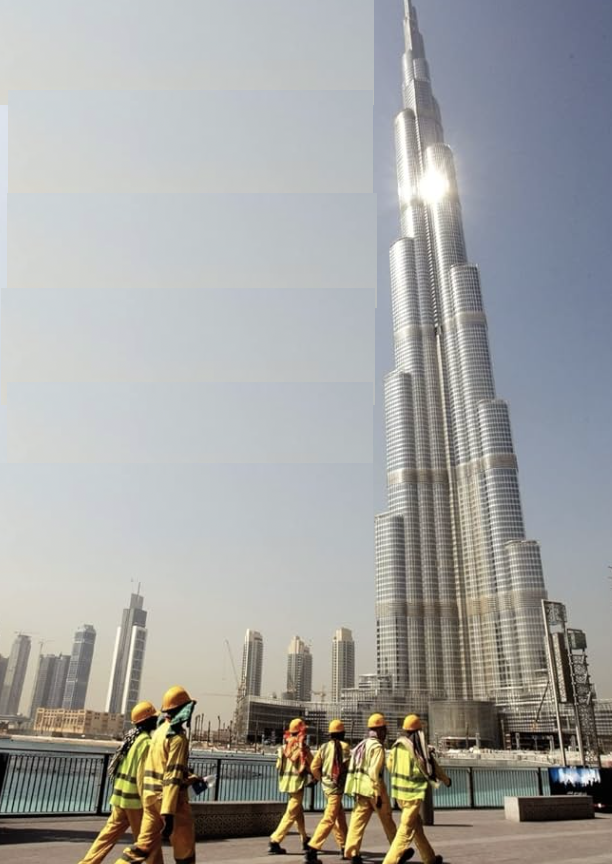The fourth and last part of the module, “Politics and Development in the Middle East”, highlighted the developmental prospects for countries in the Middle East. We have discovered a whole spectrum of factors that actively contribute to the region’s (un)even development (Friedman 2006: 32). Abundant evidence shows that the international world order has been the primary cause behind the present situation in the Middle East and Central Asian countries. Capitalism and neoliberal practices, geographical position or the role of external and internal actors all of these have impacted the region’s development (Morady 2020: 17, 24, 25; Morady, Şiriner 2011: 157). However, to understand such complex intersections, we must discuss the past.
The last century has witnessed three significant events, including the end of colonialism in 1945. Middle Eastern region was divided into new states with diverse populations within, which has caused a lot of internal conflicts and a lack of cooperation among the states (Hinnebusch 2016: 378). By 1970, most of the countries were officially independent. However, this ‘new independence’ led to the second event of the Cold War and the scramble for power over the region. From the rational lens of realists, the world’s anarchic nature makes the states compete for power over having access and control of natural resources (Morady 2020: 17).
The US pro-capitalist West and the socialist USSR were constantly competing for ‘who gets the bigger piece’ of the region. Nonetheless, it was after the fall of the USSR that the situation changed. In the liberalised market, the states operated as patron-client relationships (Hinnebusch 2016: 375). Moreover, the discovery of oil in the region in 1908 and, subsequently, the rising importance of energy worldwide have changed the relationship of the Middle Eastern states towards the great Western powers (Morady 2020: 17, 18).
Today, many countries in the Middle East hold natural resources that attract the world market. Thus, they should be blessed because of their natural resource wealth. Nonetheless, it is proven more as a curse (Franke et al. 2009: 109-112; Friedman 2006: 31). The countries became trapped in a vicious cycle. They became recipients of high revenues from their natural resource wealth, and this simultaneously leads to the abandonment of any other aspects of countries’ needs and their development (Bellin 2004: 148; Friedman 2006: 36). It is not uncommonly seen that countries become illiberal, governed under authoritarian regime (Hinnebusch 2016: 373-377).
Iran and Turkey have been widely discussed throughout the sessions and serve as exemplary models of neoliberalism. Together with globalisation, modernisation and Westernisation/Americanisation have shaped their economies (Morady, Şiriner 2011: 157). They and many others have become victims of neoliberalism.
Bibliography
Bellin, E., 2004. The robustness of Authoritarianism in the Middle East: Exceptionalism in comparative perspective. Comparative politics, pp.139-157.
Franke, A., Gawrich, A. and Alakbarov, G., 2009. Kazakhstan and Azerbaijan as post-Soviet rentier states: resource incomes and autocracy as a double ‘curse’ in post-Soviet regimes. Europe-Asia Studies, 61(1), pp.109-140.
Friedman, T., 2006. The first law of petropolitics. ECOLOGIST-LONDON AND WADEBRIDGE THEN SLINFOLD THEN LONDON-, 36(6), p.24.
Hinnebusch, R., 2016. Authoritarian persistence, Democratisation Theory and the Middle East: An overview and critique. Twenty Years of Studying Democratization, pp.373-392.
Morady, F., 2020. Imperialism and sub-imperialism in the Middle East: US sanctions and their consequences for Iran. GENDER & IMMIGRATION, p.17.
Morady, F. and Şiriner, İ., 2011. Islamism, Globalisation and Development in Iran and Turkey: Fundamentalism or Reconciliation with Capitalism?. Political Economy, Crisis & Development, p.153.
Anna Parakova
